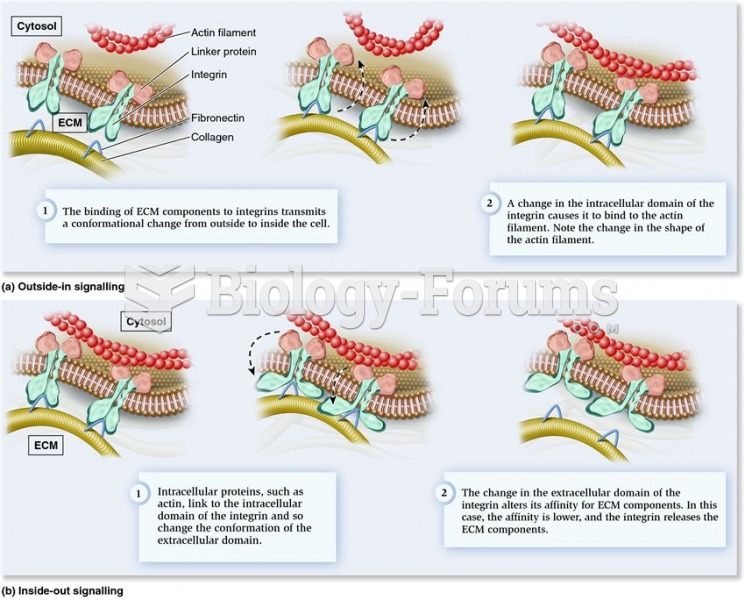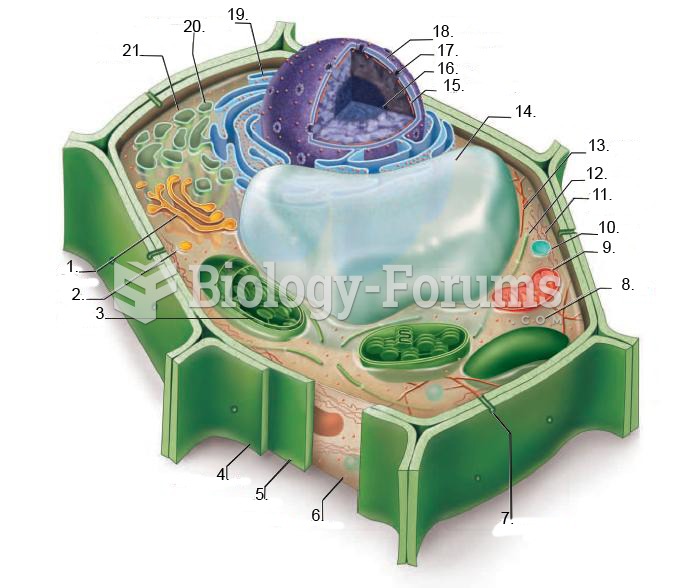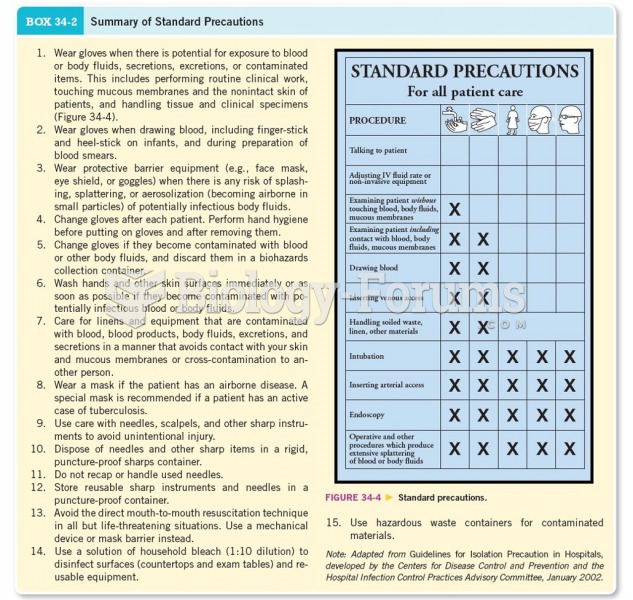Answer to Question 1
Correct Answer: 3,4
Rationale 1: The humoral and cell-mediated immune systems recognize specific antigens, not common pathogen features.
Rationale 2: The cell-mediated immune response involves helper T cells. The humoral immune system involves B cells.
Rationale 3: Both the humoral and cell-mediated immune systems form memory cells so that they can respond more quickly to subsequent infections.
Rationale 4: Both systems are specific; they attack specific antigens.
Rationale 5: The humoral and cell-mediated immune systems adapt to individual antigens and threats.
Global Rationale: The humoral and cell-mediated immune systems are part of the specific body defenses. Specificity, systemic response, and memory are characteristic of specific body defenses. The humoral immune response is mediated by B lymphocytes and includes secretion of antibodies. The cell-mediated immune response is mediated by T lymphocytes and includes secretion of cytokines. The humoral and cell-mediated immune systems recognize specific antigens, not common pathogen features. The cell-mediated immune response involves helper T cells. The humoral immune system involves B cells. The humoral and cell-mediated immune systems adapt to individual antigens and threats.
Answer to Question 2
Correct Answer: 1
Rationale 1: Histamine is responsible for vasodilation and increased vascular permeability.
Rationale 2: Histamine does not stimulate platelet production.
Rationale 3: Histamine does not stimulate white blood cell production.
Rationale 4: Histamine does not stimulate red blood cell production.
Global Rationale: Histamine is a key chemical mediator of inflammation. It is stored primarily within mast cells located in tissue spaces under epithelial membranes such as the skin, bronchial tree, and digestive tract along with blood vessels. Mast cells detect foreign agents or injury and respond by releasing histamine, which initiates the inflammatory response within seconds. When released at an injury site, histamine dilates nearly blood vessels, causing the capillaries to become more permeable. Plasma, complement proteins, and phagocytes can then enter the area to neutralize microbes or their toxins. The affected area may become congested with blood, which can lead to warmth, redness, and significant swelling and pain. Histamine does not stimulate platelet production, white blood cell production, or red blood cell production.







